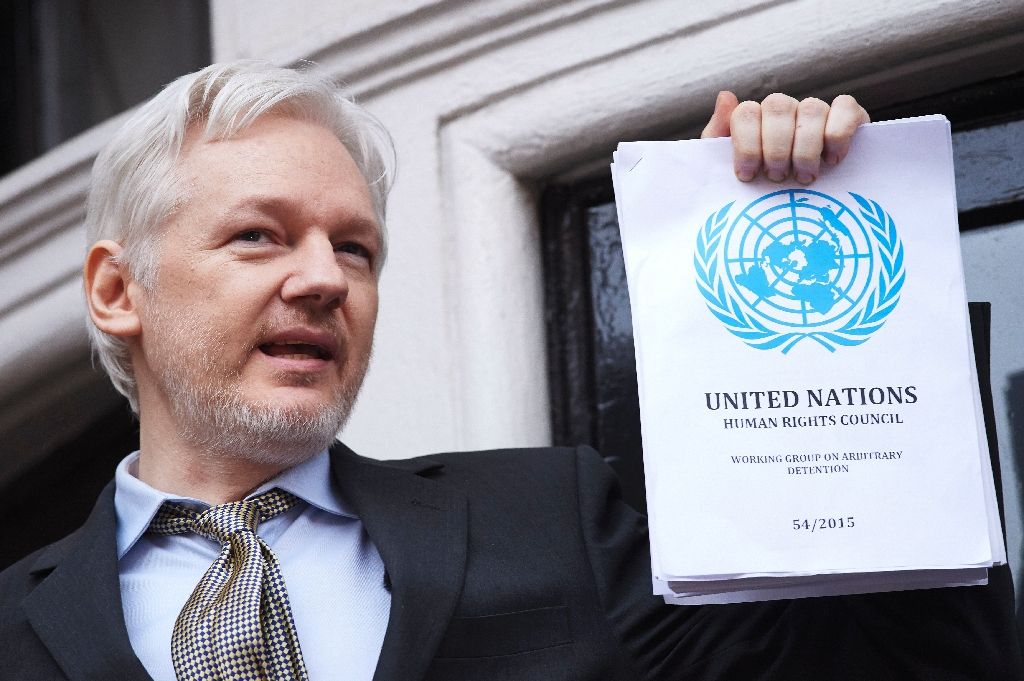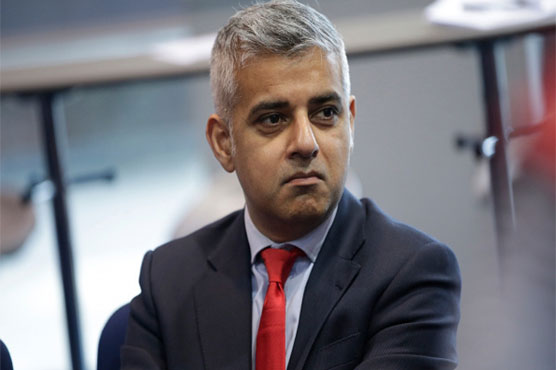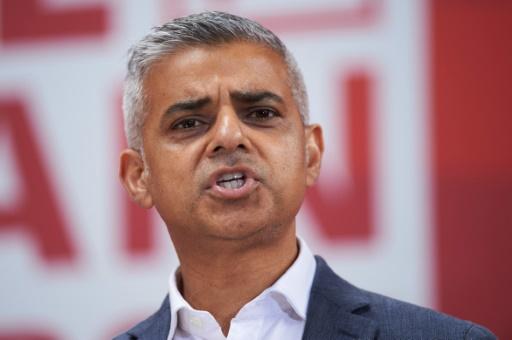
Entertainment
-
 DiscoverEU marks 40 years of Schengen with 40,000 free travel passes for young Europeans
The European Commission is celebrating the 40th anniversary of the Schengen Area by offering 40,000 young Europeans the chance to explore the continent through DiscoverEU, part of the31 October 2025Read More...
DiscoverEU marks 40 years of Schengen with 40,000 free travel passes for young Europeans
The European Commission is celebrating the 40th anniversary of the Schengen Area by offering 40,000 young Europeans the chance to explore the continent through DiscoverEU, part of the31 October 2025Read More... -
 Brussels universities to award honorary doctorates to Stromae, Lize Spit, and Amélie Nothomb
The Vrije Universiteit Brussel (VUB) announced on Monday that Stromae, Lize Spit, Amélie Nothomb, François Schuiten, and Ever Meulen will receive joint honorary doctorates from VUB and27 October 2025Read More...
Brussels universities to award honorary doctorates to Stromae, Lize Spit, and Amélie Nothomb
The Vrije Universiteit Brussel (VUB) announced on Monday that Stromae, Lize Spit, Amélie Nothomb, François Schuiten, and Ever Meulen will receive joint honorary doctorates from VUB and27 October 2025Read More... -
 Stolen Renaissance masterpiece returns to Italy after 52 years
After more than half a century, a stolen Renaissance painting has finally returned home to Italy. *Madonna with Child*, a tempera-on-wood masterpiece by Venetian painter Antonio Solario,31 July 2025Read More...
Stolen Renaissance masterpiece returns to Italy after 52 years
After more than half a century, a stolen Renaissance painting has finally returned home to Italy. *Madonna with Child*, a tempera-on-wood masterpiece by Venetian painter Antonio Solario,31 July 2025Read More... -
 Belgian seaside resorts: highlights of royal De Panne
While Ostend is often dubbed the queen of Belgium’s seaside resorts, the country’s coastline offers many other gems worth discovering. In this series, Belga English explores four distinctive20 July 2025Read More...
Belgian seaside resorts: highlights of royal De Panne
While Ostend is often dubbed the queen of Belgium’s seaside resorts, the country’s coastline offers many other gems worth discovering. In this series, Belga English explores four distinctive20 July 2025Read More... -
 Louis Vuitton named suspect in Dutch money laundering probe
Luxury fashion house Louis Vuitton has been named a suspect in a Dutch money laundering investigation, according to the Dutch Public Prosecution Service (OM). The OM alleges that18 July 2025Read More...
Louis Vuitton named suspect in Dutch money laundering probe
Luxury fashion house Louis Vuitton has been named a suspect in a Dutch money laundering investigation, according to the Dutch Public Prosecution Service (OM). The OM alleges that18 July 2025Read More... -
 Brussels tops global rankings for international meetings as tourism soars to new heights
Brussels has once again secured its position as the world’s top city for international meetings, according to the latest annual report from the Union of International Associations (UIA).26 June 2025Read More...
Brussels tops global rankings for international meetings as tourism soars to new heights
Brussels has once again secured its position as the world’s top city for international meetings, according to the latest annual report from the Union of International Associations (UIA).26 June 2025Read More... -
 Coffee prices keep climbing in Czech establishments
The cost of a cup of coffee in Czech restaurants and cafés has increased by 4% over the past year, now averaging CZK 57.80, according to data from the Dotykačka point-of-sale system.15 June 2025Read More...
Coffee prices keep climbing in Czech establishments
The cost of a cup of coffee in Czech restaurants and cafés has increased by 4% over the past year, now averaging CZK 57.80, according to data from the Dotykačka point-of-sale system.15 June 2025Read More...
News
-
 Indonesia takes delivery of first Rafale fighter jets in $8 billion defence upgrade
Indonesia has officially taken delivery of its first Rafale fighter jets from France, marking a major milestone in the country’s push to modernise its ageing military fleet.Read More...
Indonesia takes delivery of first Rafale fighter jets in $8 billion defence upgrade
Indonesia has officially taken delivery of its first Rafale fighter jets from France, marking a major milestone in the country’s push to modernise its ageing military fleet.Read More... -
 EU must build over 2 million homes annually by 2035 to avert housing crisis, new data shows
The European Union will need to build more than two million new homes every year until 2035 to keep up with soaring demand, according to new projections released by the EuropeanRead More...
EU must build over 2 million homes annually by 2035 to avert housing crisis, new data shows
The European Union will need to build more than two million new homes every year until 2035 to keep up with soaring demand, according to new projections released by the EuropeanRead More... -
 Police raid homes and offices of French Culture Minister Rachida Dati in corruption probe
French police searched Culture Minister Rachida Dati’s home and offices on Thursday as part of a widening corruption investigation linked to her tenure as a European Parliament lawmaker,Read More...
Police raid homes and offices of French Culture Minister Rachida Dati in corruption probe
French police searched Culture Minister Rachida Dati’s home and offices on Thursday as part of a widening corruption investigation linked to her tenure as a European Parliament lawmaker,Read More... -
 White Christmas unlikely in Switzerland, MeteoSwiss says
The chances of a white Christmas in Switzerland are slim, with snowfall in the lowlands virtually ruled out, according to the Federal Office of Meteorology and Climatology (MeteoSwiss).Read More...
White Christmas unlikely in Switzerland, MeteoSwiss says
The chances of a white Christmas in Switzerland are slim, with snowfall in the lowlands virtually ruled out, according to the Federal Office of Meteorology and Climatology (MeteoSwiss).Read More... -
 Guy Parmelin elected Swiss President for 2026 with record-breaking vote
Economics Minister Guy Parmelin will serve as President of the Swiss Confederation in 2026, securing the office with a result that sets a new benchmark for the current millennium.Read More...
Guy Parmelin elected Swiss President for 2026 with record-breaking vote
Economics Minister Guy Parmelin will serve as President of the Swiss Confederation in 2026, securing the office with a result that sets a new benchmark for the current millennium.Read More... -
 Nigeria seeks French support to tackle insecurity, Macron says
Nigerian President Bola Tinubu has requested increased support from France to combat escalating insecurity in the country’s north, French President Emmanuel Macron said on Sunday,Read More...
Nigeria seeks French support to tackle insecurity, Macron says
Nigerian President Bola Tinubu has requested increased support from France to combat escalating insecurity in the country’s north, French President Emmanuel Macron said on Sunday,Read More... -
 Swiss army has “gone back to sleep,” says departing chief
Switzerland briefly awakened to the urgency of national defence following Russia’s 2022 invasion of Ukraine — but has since drifted back into complacency, outgoingRead More...
Swiss army has “gone back to sleep,” says departing chief
Switzerland briefly awakened to the urgency of national defence following Russia’s 2022 invasion of Ukraine — but has since drifted back into complacency, outgoingRead More...

Most Read
- Teen held after US woman killed in London stabbings
- Football: Farhad Moshiri adamant Everton deal above board
- Greece hails new post-bailout chapter but concerns remain
- The Kokorev case caused wide discussion in Brussels
- EU accession talks stir debate in Moldova: insights from Gagauzia's leader, Yevgenia Gutsul
Politics

Ecuador says it will let Swedish officials interview Julian Assange at its embassy in London, where the WikiLeaks founder has been sheltering for the past four years.
Quito's foreign ministry said in a statement late Wednesday that a letter has been sent by the Ecuadoran government to set up the meeting.
"In the coming weeks, a date will be established for the proceedings to be held at the Embassy of Ecuador in the United Kingdom," the statement read.
Prosecutors in Sweden have said they want to interview Assange in connection with a 2010 rape allegation against him.
"The prosecutor has requested permission to carry out an interrogation, so it is of course good for the investigation if it can be held," Karin Rosander, spokeswoman for the Swedish Prosecution Authority, told AFP on Thursday.
She said however that the exact date of the interview has not yet been pinned down.

Sainsbury’s Nine Elms Point store donated water bottles, flavoured drinks, crisps, cups and plates to InHarmony Lambeth Community Concert at Wheatsheaf Hall, where students were playing the orchestra in front of children, students, young people, tutors and parents. All the goods donated by the store will be used to support the local children that attend the InHarmony events in Lambeth.
Steven Moore, After School Lead at InHarmony contacted the store looking for support with refreshments and treats for the event on Thursday 14th July 2016, which was estimating around 250/300 people to attend, the community concert event took place at the Wheatsheaf Hall, Wheatsherf Lane off South Lambeth Road.
In Harmony Lambeth (IHL) was launched in 2009 and is inspired by the Venezuelan El Sistema Programme. It is primarily a social action programme which encourages the pursuit of excellence to enrich the lives of children, young people, families and the wider community around the Stockwell and Vauxhall area.
If you wish to find out more about the School and up coming public events then please visit: http://www.inharmonylambeth.co.uk/ also there will be some great pictures taken at the event by the school which can be located on their social media feed: https://twitter.com/ihlambeth

London Mayor Sadiq Khan spoke out against the banning of the Islamic burkini swimsuit in France as he headed to Paris Thursday for talks with his French counterpart.
Khan, the first Muslim mayor of a major Western capital, spoke out after some 30 French towns banned the burkini, triggering a fierce debate about women’s rights and secularism.
"I don’t think anyone should tell women what they can and can’t wear. Full stop. It’s as simple as that," he told the London Evening Standard newspaper.
"I don’t think it’s right. I’m not saying we’re perfect yet, but one of the joys of London is that we don’t simply tolerate difference, we respect it, we embrace it, and we celebrate it."

The new Sainsbury’s Nine Elms Point has opened today creating 250 new jobs for the local community.
Former long-serving colleague, Ann Martin, joined store manager, Andy Robins, to cut the official ribbon of the new store and declare it open for business.
The new store sees Sainsbury’s return to the area, with the company having had a store there previously for over 30 years. The old store was demolished to pave the way for the current redevelopment of Nine Elms.
Commenting on the opening, store manager Andy, said:
“It is fantastic to have Sainsbury’s back at the heart of a community that we previously served for over 30 years. We have been counting down the days to Wednesday 24th August, and can’t wait to showcase what we have to offer in store.”
“We’ll be pleased to see the familiar faces of returning staff and welcome new employees from Lambeth and Wandsworth. The new store is another mark of progress in and around Vauxhall”,- said Cabinet Member for Regeneration, Lambeth Cllr Jack Hopkins.

London's Labour mayor Sadiq Khan on Sunday urged party members to unseat boss Jeremy Corbyn in the upcoming leadership election, saying he had "failed to win the respect of the British people."
"Jeremy's personal ratings are the worst of any opposition leader on record and the Labour party is suffering badly as a result," Khan wrote in the Observer, the Sunday version of the centre-left Guardian newspaper.
"He has lost the confidence of more than 80 percent of Labour's MPs in parliament -- and I am afraid we simply cannot afford to go on like this," he added.
Khan is backing Owen Smith in the upcoming party election, voting for which will begin on Monday when ballot papers will be sent out to Labour members.

Midnight at bustling Oxford Circus Underground station in the heart of London, a band is playing and weekend revelry is only just beginning for some residents of the Big Smoke.
Excited Londoners and tourists jostle to be among the first to take the Night Tube — a new service that will see the Victoria and Central lines run all night on Fridays and Saturdays.
“It’s great that the tube’s going to be open all night,” said Omar Khan, a 27-year-old clothing designer who was planning to party through the night with his friends.
The Night Tube is seen as a boost for revellers, tourists and shift workers, who on Friday and Saturday nights will now be able to travel on the network at any chosen hour.

Residential rents for new lets in London have fallen for the first time in six years, according to the first study published on the issue since Britain voted to leave the European Union.
A monthly survey published by Countrywide estate agents on Monday found that new rental contracts were priced 0.5 per cent lower in July than for the same period last year.
The average monthly rental contract in July was £1,280 ($2,214), around £7 cheaper than a year ago.

China's ambassador to Britain urged London on Tuesday to approve a Beijing-funded nuclear power plant as soon as possible, warning that relations between the two countries were at a critical point.
"Right now, the China-UK relationship is at a crucial historical juncture. Mutual trust should be treasured even more," Liu Xiaoming wrote in an article in the Financial Times newspaper.
"I hope the UK will keep its door open to China and that the British government will continue to support Hinkley Point -- and come to a decision as soon as possible so that the project can proceed smoothly."
On July 28, Britain's new government said it was delaying final approval of the £18-billion (21-billion-euro, $23 billion) project to build Hinkley Point, the country's first new nuclear plant in a generation.

The last two reporters working on Fleet Street filed their final stories on Friday, ending more than 300 years of journalism on the London thoroughfare synonymous with Britain's newspaper industry.
London chief reporter Gavin Sherriff and entertainment features writer Darryl Smith, journalists with Scottish weekly The Sunday Post, are all that remains of the famed institution.
"We knew as journalists that this was an important part of history for our profession, which we love," Smith told AFP.
"There is still that attachment to Fleet Street as a centre of the profession, and we are that final torchbearer."
AFP's departure from Fleet Street in 2009 left the London bureau of Scottish publishers D. C. Thomson as the last remaining newsroom in the industry's spiritual home, now overtaken by investment banks and legal offices.

British police were holding a 19-year-old man on suspicion of murder Thursday after a central London stabbing spree that killed a US woman but appeared unrelated to terrorism.
Cities across Europe have been on edge after a string of attacks in recent weeks and the overnight rampage that killed the woman and injured five others, had triggered fresh terror fears.
But authorities said there was no sign the Norwegian man of Somali origin was radicalised or had jihadist motives, with the evidence so far pointing to the attack being sparked by mental health problems.
The US woman killed was named as 64-year-old Darlene Horton, whose family is receiving support from police.
US Secretary of State John Kerry described the attack as a "horrific mass stabbing" and said he grieved for the victims.
Senior police officer Mark Rowley said: "We believe this was a spontaneous attack and the victims were selected at random.
"We have found no evidence of radicalisation or anything that would suggest the man in our custody was motivated by terrorism."



















